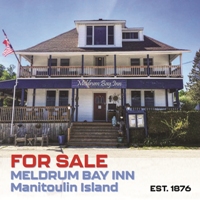Mike and I saw The Post on the weekend, the film by Steven Spielberg, starring Meryl Streep as Katherine Graham, the owner of The Washington Post, and Tom Hanks as Ben Bradlee, top editor at the paper. This is the true story of the leak and publication of the Pentagon papers which document the U.S. government’s knowledge that the Vietnam war could not be won, yet soldiers continued to be sent to slaughter.
The government threatened The Post with injunctions and court action if they took up where The New York Times had been silenced by an injunction forbidding further publication about this. Graham risked everything in order to publish the truth. The film ends with scenes about the burglary of the Democratic National Committee at the Watergate building in Washington. This film can therefore be seen as the prequel to All The President’s Men, filmed in the 1970s. The next night Mike and I watched my video of that film.
We were struck by similarities in both films, to the current situation in the U.S.: arguably systemic, pervasive, continuing illegal and/or immoral action by political candidates, politicians and civil servants to harm opposing candidates, which in these three examples, are Republicans interfering with Democrats.
Freedom of the press is depicted in these films to be the saviour of democracy. This led us to hunt down our blog post from Dec. 9, 2011: “Governments May Not Sue Critics.” At that time I was nervous about identifying the case precisely. Now I feel confident about publicizing that the case was between The Corporation of the Town of Halton Hills and staff member Terry Alyman, versus Al J. Kerouac, at the time a local Internet news publisher. You can read the full decision by Justice J. Corbett here.
Again, here are the critical highlights of his findings:
“no government may bring an action in defamation…Everyone should be free to criticize democratically elected governments, be they federal, provincial or local, without risking a defamation action…
“Without free speech, there is no free press. Without a free press, there is no free political debate. Without free political debate, there cannot be true democracy. Freedom, writ large, is a pillar of democracy… A law that restricts free speech, even slightly and for noble purposes, has some chilling effect…
“In a democracy, it is essential that the government be in the public domain, and be available for criticism of all kinds.
“…everyone has a right to voice her [sic] opinion, whether orally or in writing…
“It is in the very nature of a democratic government itself that precludes government from responding to criticism by means of defamation actions…
“The government may not imprison, or fine, or sue, those who criticize it…Litigation is a form of force, and the government must not silence its critics by force.
“…any legal restriction on freedom of expression about public affairs has a chilling effect on freedom of expression generally…”
This case needs to be remembered and celebrated anew, in these times of distressing challenges to democracy.




